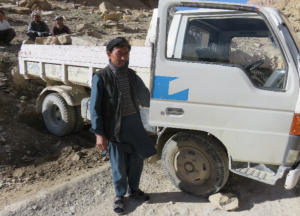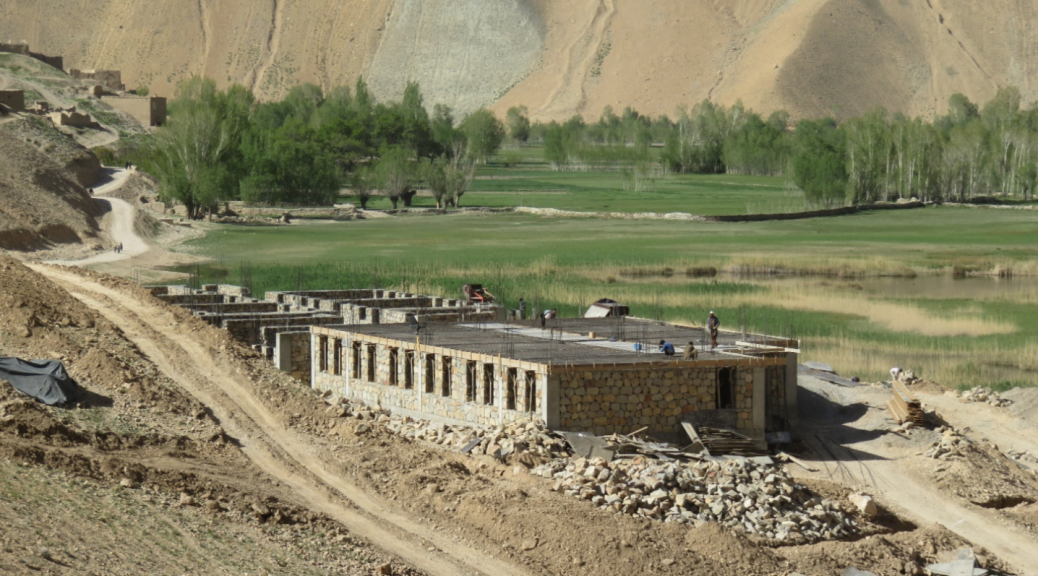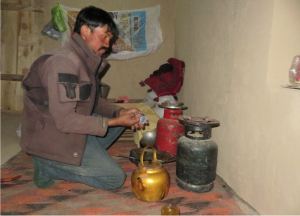The income generation related to the construction site promotes the growth of a local almost non-existent economy.
Although only 12% of the country is made up of arable land, the Afghan economy relies heavily on agriculture, especially in remote areas. The primary sector supports more than 60% of the population but half of the rural households only practice subsistence farming, and therefore do not market their own production. These populations are the most affected by seasonal variations: winters are often long and harsh and to survive until spring, a large part of these small farmers must sell cattle, find a job outside agriculture or borrow money. Poverty is particularly acute in mountainous regions, where the poor road conditions and difficult access to markets add to the changeable weather conditions.
Abuzhar is 35 years old and works as a cook at the Sokhtagi school site. He is very happy to have found a job. The unexpected income prompts this father to recount: “Without this job, I could not have satisfied the needs of the five members of my family. I had no hope because I do not own land and had no prospect of income.
 Mohamed, 50 years old and head of a family of eight, took the opportunity to pass his truck driving license when he learned that Nai Qala would build a school in his village. His first months salary as a driver allowed him to support his family for a year. With the salary he will receive for the second phase of the project, he plans to buy livestock. Four of Mohamed’s children attend school, three girls and one boy. Thanks to his salary and the prospect of future livestock, he is optimistic about the education of his children; he is now sure to be able to send them to school.
Mohamed, 50 years old and head of a family of eight, took the opportunity to pass his truck driving license when he learned that Nai Qala would build a school in his village. His first months salary as a driver allowed him to support his family for a year. With the salary he will receive for the second phase of the project, he plans to buy livestock. Four of Mohamed’s children attend school, three girls and one boy. Thanks to his salary and the prospect of future livestock, he is optimistic about the education of his children; he is now sure to be able to send them to school.
The arrival of a construction site in remote areas, such as the Sokhtagi school, is often a unique and unexpected opportunity to get an income. To date, 34 people work on the site of the future school, of which 26 are local employees recruited from the village specifically for the project. In addition to providing wages to workers, the construction company buys food, to feed its employees, from families or on the local market. Wages and food purchases are a welcome contribution to the growth of the local economy and reduce family poverty.


